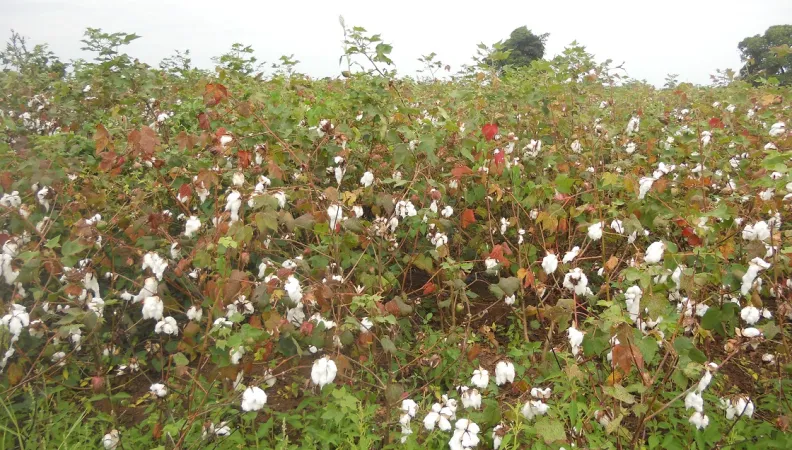Share the page
Benin Sows the Seeds of Agroecology
Published on

AFD has supported the Agro-ecological Transition in Cotton Areas Project (Tazco) run by the Government of Benin since 2017, with the aim of preserving natural ecosystems and enabling cotton producers to maintain their standard of living,
Cotton is essential to Benin. It has a ripple effect on all food crops and contributes more than 15% of GDP. However, in the space of just 20 years, more than 2 million hectares of farmland have been degraded, equal to 19% of the country. Moreover, the yields of family cotton farms are declining.
Improving yields
That is why, since 2017, the Tazco project - run in collaboration with Cirad and the Benin Cotton Fiber Research Center - has set itself the goal of improving agricultural yields by restoring and improving soil fertility. Producers are trained in innovative agro-ecological practices, using a special methodology to transmit knowledge, including techniques that are based on collective consultation such as role-playing and peer demonstration.
Working in both research centers and on farms, some twenty practices are tested. All of the techniques are adapted to the specificities of the terrain found in the surrounding villages. "On 1,000 plots, we systematically compared new agro-ecological practices with the farmer's conventional practices. We identified the most common mistakes made by the producers, and told them how to correct them," explains Dr. Oumarou Balarabé, technical assistant.
On some of these plots, legumes and grasses are grown, plants known to enrich the soil. These can be grown either alongside the cotton or in rotation. On others, different practices are being introduced, such as «rotational parking", which consists of letting herds of oxen stay for a time on cotton farms to fertilize the soil naturally.
Maximizing Fertility
To minimize pressure on the land and reduce the drudgery of cotton farmers, the project facilitates the use of agricultural machinery, designed for sustainable, small-scale farming and manufactured locally.
Good resource and fertility management is one of the foundations of agro-ecology. This includes collaboration between farmers and herders -a relationship that has often been, and continues to be conflictual. By promoting integrated agriculture-livestock management, the Tazco project has helped to reduce disputes.
We have promoted a participatory approach by bringing together agro-pastoralists, farmers and herders to discuss various issues such as bush fires, fertility transfers and the distribution of space," explains Grâce Ahandagbé, field engineer in charge of research and development tests. We have tried to establish the basis for collaboration with them so that we can move together towards sustainable agriculture.
Towards inclusion
Building on the achievements of this first phase, the project was renewed in 2020 with a view to providing specific support for the next five years, promoting access, financing and collective management of resources that were gradually put in place in association with producers' organizations. Special attention has been paid to the involvement of women, particularly in small-scale livestock farming, the production of organic cotton and the small-scale processing of legumes that are part of the cotton crop rotation cycle.
With the Tazco project, the Government of Benin has supported nearly 30,000 producers in cotton-growing areas. This transition is in line with the country's ambition to remain a leader in cotton production in West Africa. This challenge, if met, will perhaps prove that the issues of sustainability and productivity can be reconciled.
Introducing regulations that support the implementation of more ecological practices has also been recommended, as this would help reduce the wandering of animals without owners, and limit the use of pesticides and bush fires.
